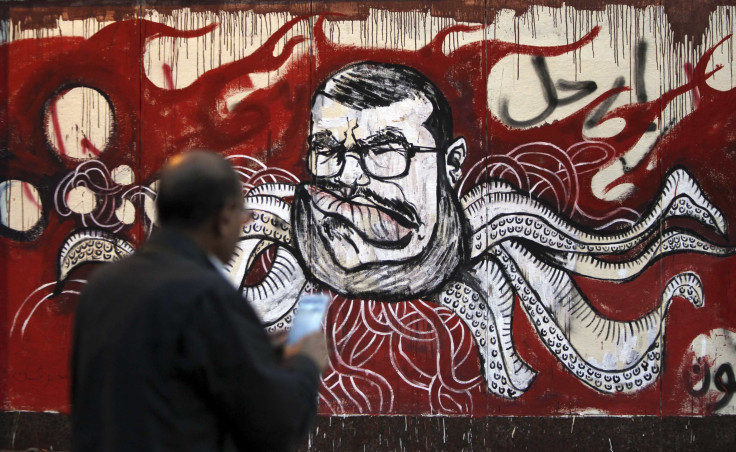Egypt's President Mohammed Morsi Reportedly Annuls Decree, But Constitutional Referendum Still Set For Dec 15

It is clear Egyptian President Mohammed Morsi began a political crisis by assuming autocratic powers via a so-called constitutional decree Nov. 22, but it is unclear whether he will be able to end it by apparently having annulled the decree Saturday.
"The constitutional decree is annulled from this moment," Mohammad Salim Al-Awa, an Islamist politician and adviser to Morsi, said at a news conference after a meeting with the president and other political leaders, according to Agence France-Presse via Google.
However, Morsi himself appears to have made no comment on the current status of the divisive decree, which made him accountable to no other authority in the government, such as the judiciary.
In any case, the decree is only one of the two issues that has led to almost-daily -- and increasingly violent -- demonstrations in Cairo against Morsi's administration over the past two-and-a-half weeks.
Equally controversial is a draft constitution that will be either accepted or rejected through a referendum on Dec. 15. The draft was hastily OK'd by the Islamist-dominated Constituent Assembly on Nov. 29-30.
Morsi is also an Islamist: He was elected Egypt's president as the candidate of the Muslim Brotherhood's Freedom and Justice Party this year.
Some of the president's political opponents have charged he assumed autocratic powers in part to allow the Constituent Assembly to complete its work on the draft constitution. And some of them have also criticized that draft because of its purported tilt toward Islamic interpretations of law and against both human rights and women's rights, AFP indicated.
Gamal Eid, a human-rights lawyer, called Morsi's apparent agreement to rescind some of his self-granted powers a "play on words" due to the fact Morsi had already achieved the desired aim of finalizing the draft constitution and protecting it from a judicial challenge, the Associated Press reported.
Bassem Sabry, a writer and activist, contended the changes constituted a "stunt" designed to embarrass Morsi's political opponents by making it look like the president was willing to compromise, but not solve the problem, AP reported.
"In the end," Sabry said, "Morsi got everything he wanted."
© Copyright IBTimes 2025. All rights reserved.






















